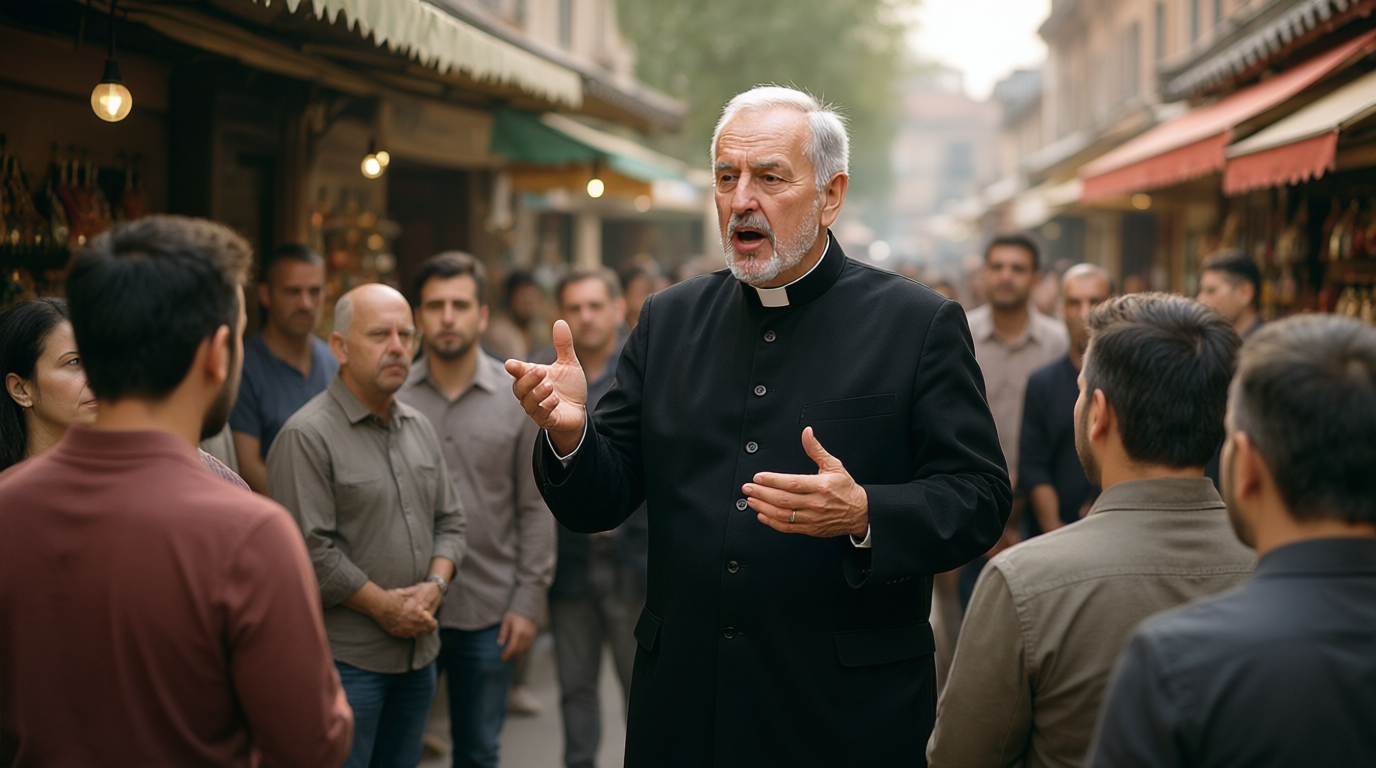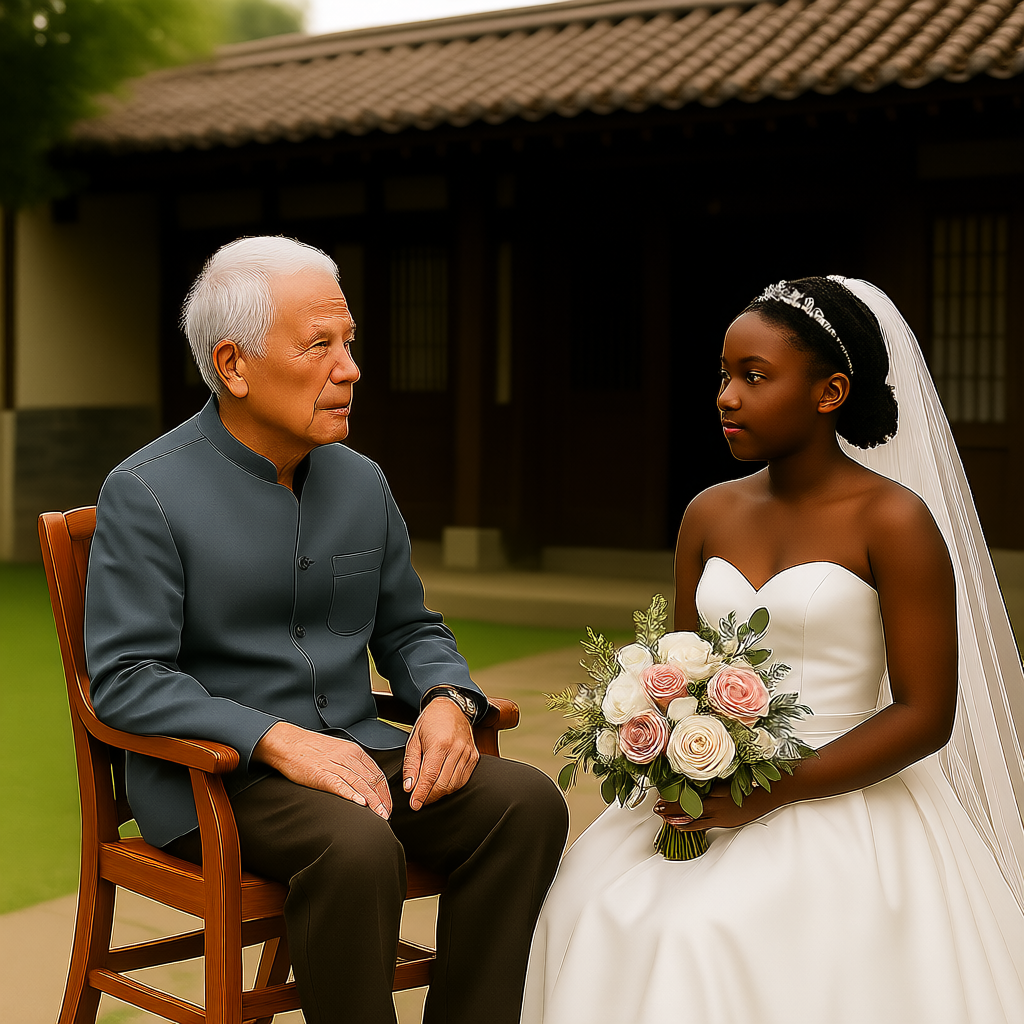Seven years ago I told her I wanted two things in life. I wanted to become a motivational speaker and I wanted a steady relationship built on mutual support. She answered with a sentence I still remember. She said she could not date someone who was unemployed. I argued, I insisted that potential mattered more than present status, and she chose the easiest option. She blocked me everywhere.
That silence taught me more than pain did. It taught me the cost of loving someone who values comfort over courage. It taught me that character shows up not in success alone but in the patient choices people make when things are hard. For years I carried that memory like a bruise. I also turned it into a quiet engine. I practiced speaking, I learned to structure ideas, and I took tiny stages where no one knew my name. I built a life from the unfinished sentences of a younger me.
Yesterday a number I did not recognize rang on my phone. The voice on the other end was careful and oddly formal. She introduced herself as if we were strangers, then she said the words no one wants to hear. She had married a wealthy man, and the life she thought would be secure had turned cruel. He cheated and he was violent. She had three children and nowhere safe to go. She wanted me to accommodate her.
My reply was clear and immediate. No. Not because I wanted revenge. Not because I hated her. I said no because some costs you cannot pay without losing yourself. I will not erase seven years of being dismissed by stepping into a role that would deny the dignity I worked so hard to reclaim. I will not become a refuge for someone who once judged my worth by my bank balance.
That answer will feel harsh to some. It was intentional and it came from a place of hard earned wisdom. If you have been treated as less than while you were building yourself, starting again by taking responsibility for someone who abandoned you emotionally is a trap. It is a trap because it asks you to validate choices made for convenience, not for love. It asks you to become a safety net for someone who did not stand with you when you were vulnerable.
There is also a moral clarity here. People are not owed rescue from the consequences of their choices. That is not cruelty. It is accountability. When someone chooses wealth knowing what it requires, they also choose the risks that come with it. If that choice leads to abuse, compassion calls us to offer guidance and to point toward help. It does not require personal accommodation that undermines your boundaries or your life plans.
If you find yourself in a similar story here are the practical principles that guided my response and that might help you craft your own.
First, protect your emotional recovery. A person who rejected you when you were building might return at the moment they need comfort. That is understandable, and it is human. It is not your obligation. You built a life in part to avoid being dependent on other people for your dignity. Allowing someone back into your life in a crisis does not erase the past. It risks reviving old wounds.
Second, offer help that does not cost you your values. You can be kind without removing your boundaries. If she needed information about shelters, legal aid, parenting resources or counseling services, I could have given that. I could have connected her with professionals who help survivors of abuse and with community services that support single parents. Practical referrals cost little and can do a lot. They also preserve your integrity.
Third, consider children separately from adult disputes. Adults make choices. Children do not. If there is a way to help ensure the safety of the children that does not require you to accommodate the mother in your home, that is worth exploring. Practical support could mean referring to a trusted children welfare agency, offering to help find a childcare worker, or sharing verified contacts for legal assistance. Direct financial or residential support in messy emotional situations usually creates complexity and sometimes legal risk. Be cautious.
Fourth, name your limits out loud and calmly. When she asked for accommodation I said no and I explained why without hostility. I told her I could help by pointing her to resources, but I could not invite her into my life. Clear boundaries reduce the chance of mixed signals and they protect you and others from spiraling complications.
Fifth, guard your safety and reputation. In volatile situations, never act alone. If you decide to get involved in some form, do it through recognized channels. Use helplines, shelters, or charities that have safety protocols. If you feel pressure or threats, document everything and consider legal advice. People in crisis can react unpredictably. Make choices that minimize risk to you and to anyone you might try to help.
Sixth, reflect honestly about closure. Saying no will not feel clean or heroic right away. You may replay memories and wonder what would have happened if you had been more persuasive in the past. That is normal. The healthier use of that reflection is to learn what you will accept in future relationships. Value clarity and mutual support. Do not confuse nostalgia with an obligation to repair what was broken by another person long ago.
Seventh, hold to the larger lesson. Never look down on someone because they are not yet who you imagine them to be. People rise and fall in different seasons. But also believe that the people who choose ease over effort will often show their priorities in ways that matter when crises come. That is a form of information. It guides how you love and whom you trust.
There is a compassion in my refusal. I did not mock her pain. I did not laugh at her choices. I offered honesty and an offer to help in ways that kept both of us safe. She asked me to change my life to fix hers. I refused because doing so would have asked me to erase the very standards that protected my dignity. That is not selfishness. That is stewardship of the person I became.
If you are wrestling with a similar call from someone you once loved, here is a short practical script you might use. Say thank you for their honesty. Acknowledge their hardship. State your boundary in one sentence. Offer one practical resource or referral. End by wishing them safety. Minimal language reduces drama and models the kind of respect you now insist upon.
This story is not about vindication. It is about growth. It is about learning that love is not an unlimited resource you must pour into every hand that asks. It is about seeing that sometimes the kindest response is a firm no and a clear list of ways to get help that do not cost you your life.
She once said she could not date someone who was unemployed. That cut then. Today it clarifies me. I work toward a life where my values and my choices match. I will help when I can without sacrificing my future. And I will remind anyone who listens of one truth worth carrying forward. Never look down on someone because you cannot see the hard work they are doing in private. Time shows us who invested in growth and who invested in ease.









Comments (0)